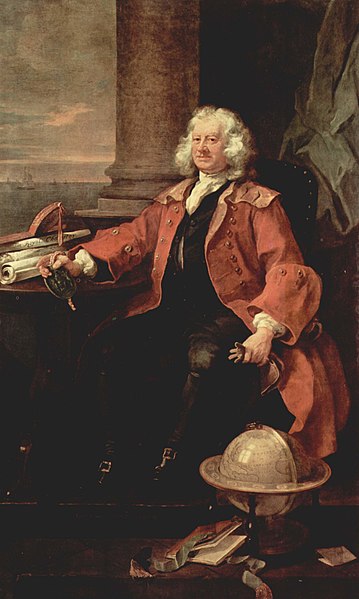Captain Thomas Coram was an English sea captain and philanthropist who created the London Foundling Hospital in Lamb's Conduit Fields, Bloomsbury, to look after abandoned children on the streets of London. It is said to be the world's first incorporated charity.
Portrait by William Hogarth, 1740.
Cpt. Thomas Coram by William Nutter, 1796
43 Hatton Garden, former 1666 Foundling Hospital by Christopher Wren, now known as Wren House
Statue of Thomas Coram, Brunswick Square, London by William McMillan, 1963
The Foundling Hospital was a children's home in London, England, founded in 1739 by the philanthropic sea captain Thomas Coram. It was established for the "education and maintenance of exposed and deserted young children." The word "hospital" was used in a more general sense than it is in the 21st century, simply indicating the institution's "hospitality" to those less fortunate. Nevertheless, one of the top priorities of the committee at the Foundling Hospital was children's health, as they combated smallpox, fevers, consumption, dysentery and even infections from everyday activities like teething that drove up mortality rates and risked epidemics. With their energies focused on maintaining a disinfected environment, providing simple clothing and fare, the committee paid less attention to and spent less on developing children's education. As a result, financial problems would hound the institution for years to come, despite the growing "fashionableness" of charities like the hospital.

1753 engraving of the Foundling Hospital building, now demolished
The Foundling Hospital was first located in Hatton Garden
The same statues from the Foundling Hospital located in Hatton Garden are above the side door of the near St Andrew Holborn. Thomas Coram, founder of the Foundlings' Hospital is buried here, his remains were translated from his foundation in the 1960s.
William Hogarth's portrait of Thomas Coram.







